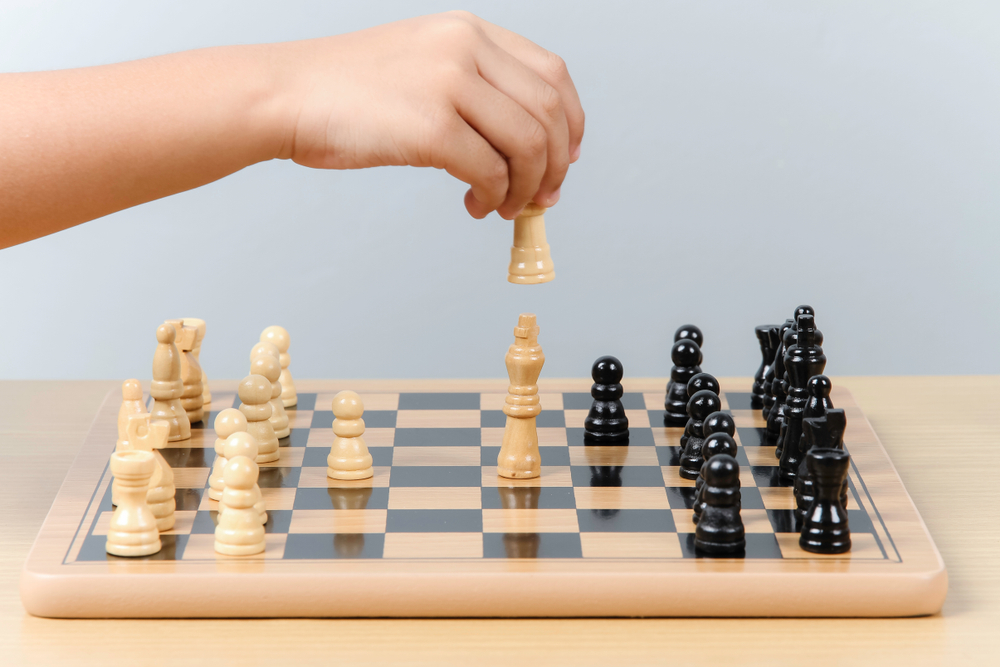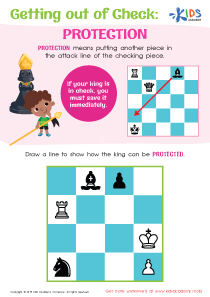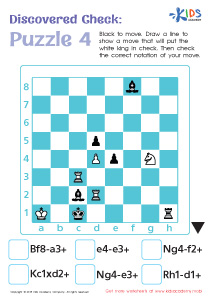Memory enhancement Chess Worksheets for Ages 7-8
3 filtered results
-
From - To
Unlock the power of your child's mind with our Memory Enhancement Chess Worksheets for ages 7-8! These engaging printable resources are designed to boost concentration, memory, and cognitive skills through the timeless game of chess. Ideal for young learners, each worksheet presents fun and challenging activities that seamlessly blend gameplay with educational tasks. From recalling moves to identifying patterns, these exercises adapt to skill levels, enabling children to embark on a memorable learning journey. Help your child develop critical thinking and memory prowess while enjoying the fascinating world of chess. Start nurturing their mental agility with our expertly crafted worksheets today!
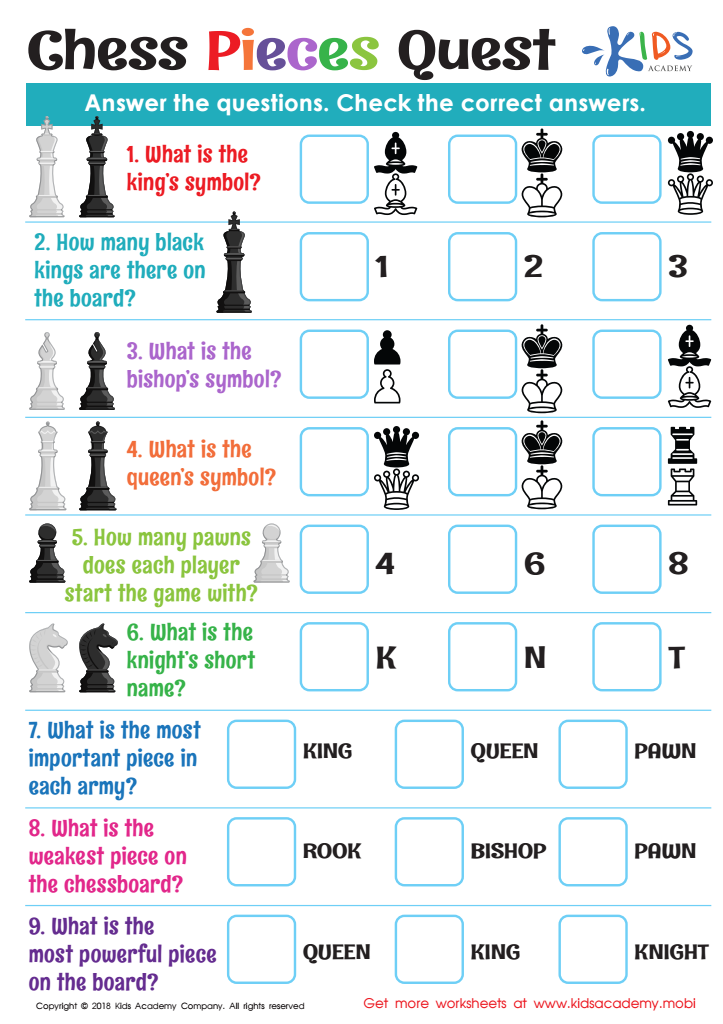

Chess Pieces Quest Worksheet
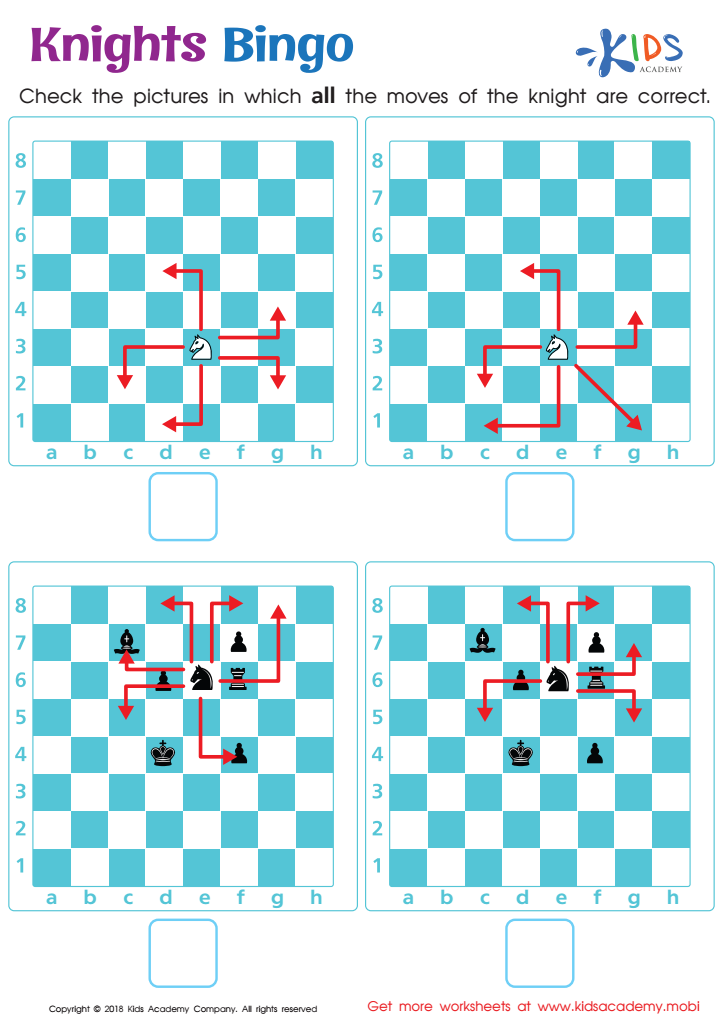

Knights Bingo Worksheet
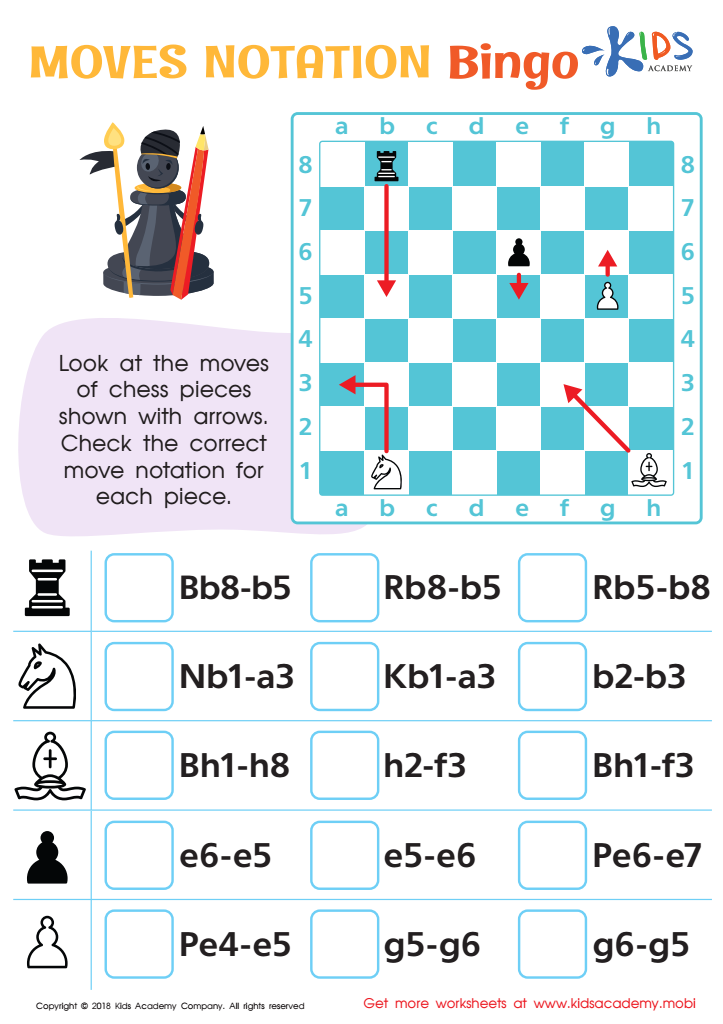

Moves Notation Bingo Worksheet
Memory enhancement chess for ages 7-8 offers significant cognitive and developmental benefits that should resonate with parents and teachers alike. At this formative stage, children are eager to learn and absorb new concepts. Chess encourages critical thinking, strategic planning, and problem-solving skills, effectively stimulating their brain development. The game requires players to remember pieces, moves, and strategies, which directly enhances their memory capabilities.
Engaging in chess helps improve attention spans and focus, crucial skills for academic success. As children learn to juggle various elements of the game, they also nurture their ability to concentrate on tasks without distractions. Furthermore, chess fosters important social skills through interaction with peers and adults. This collaborative element encourages communication, sportsmanship, and the ability to handle wins and losses graciously.
The academic benefits are equally compelling. Studies suggest that students who engage in chess often show improved performance in subjects like math and reading due to enhanced analytical skills. By investing in memory enhancement chess for young children, parents and teachers help develop not only cognitive skills but also life skills that will be advantageous throughout their educational journey and beyond. Such foundational experiences can shape well-rounded, capable individuals who thrive in various environments.

 Assign to My Students
Assign to My Students








